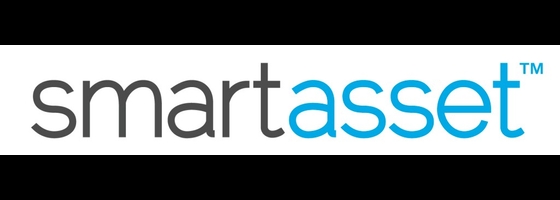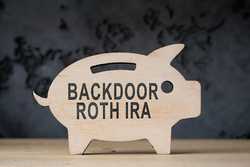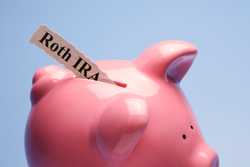Should You Pay Off Your Mortgage or Invest?

Our evaluations and opinions are not influenced by our advertising relationships, but we may earn a commission from our partners’ links. This content is created by TIME Stamped, under TIME’s direction and produced in accordance with TIME’s editorial guidelines and overseen by TIME’s editorial staff. Learn more about it.
If you have some extra money and you’re debating whether to put it towards mortgage payments or invest it, the great news is, both are worthy goals. While there’s no one-size-fits-all answer, each option comes with unique pros and cons. When making a decision, you can consider factors such as your mortgage rate, risk tolerance, what you expect to earn if you invest, as well as your individual financial goals.
Putting extra money towards your mortgage might make sense if you don’t like the idea of mortgage debt and you want to fully own your home. If you decide to go this route, it’s generally better to do so early on in your mortgage, as this is when most of your payment goes to interest. As you progress further along in your mortgage and your balance gets smaller, more of your payment goes to the principal. In this case, investing is often the more financially sound choice. Here are a few pros and cons to contemplate while making your decision.
From a financial perspective, if you can earn a higher rate of return through investing than you pay toward your mortgage, it’s better to invest. But this decision isn’t only about dollars and cents, there are other factors to consider.
If you are interested in making a decision based entirely on math, then you can do the calculations. However, financial decisions are rarely that simple and often include elements of emotion and bias. When trying to choose between paying your mortgage or investing, take into account these key considerations:
What are you willing to risk? Investing in the market is riskier and can feel more stressful than paying off your mortgage. But, there is also greater potential to earn more money. Paying your mortgage is typically the safer option because, with a fixed monthly payment, you know exactly what you’re going to get.
The earlier you can start saving for retirement, the better. This allows you to take advantage of compound interest (earning interest on interest). If you are in your 20s or 30s, you have time to ride out a volatile market. If you’re approaching retirement age, you might want a more conservative choice.
If you have a low mortgage rate, you can typically make more money by investing. For instance, if your mortgage rate is 3% and the average yearly return on investments is 8%, it makes more sense to invest the money. Even after you account for the 3%, you are still making 5%.
However, if your mortgage is on the higher side, you may want to funnel more money into your mortgage payments.
If you’re going to put money towards your mortgage, aim to do so in the early years of your mortgage. Early on in your mortgage payments, more of your money goes towards paying off interest versus the principal.
Consider how much money you can save by paying off your mortgage early versus how much money you can potentially earn by investing in the market. Of course, this is not a foolproof calculation because no one knows with certainty what the market is going to do.
If you can afford to do both, then you don’t have to choose. Put a little extra towards your mortgage to pay it down faster while also investing to grow your wealth.
Before you make a decision, you can speak with a certified financial advisor. A financial advisor can help you assess your finances and run your numbers. Some of the best financial advisors to work with are fiduciaries. A fiduciary advisor makes investment decisions based on what is best for you as opposed to where they can make the most commission.
You can visit SmartAsset where you will be matched with an advisor based on your financial needs. The service is completely free and you are not obligated to work with the advisor you are matched with. Another option is SmartAsset. You can compare top financial advisors to find someone to match your needs.
When deciding where to put your extra money, you can also consider alternatives outside of investing and paying your mortgage.
If you have high-interest credit card debt or a line of credit, you might want to apply extra money to paying this debt. A credit card with a 20% interest rate is costing you much more than a mortgage payment at 5%. Similarly, the average stock market rate of return is 10%. Therefore, it still makes more financial sense to pay off high-interest debt.1
Life is unpredictable. To prepare for an emergency or unexpected expense, consider building an emergency fund. Many experts recommend saving enough to cover three to six months of living expenses. If you invest all of your extra money into your mortgage and then encounter a medical emergency, you will have to sell your house to liquidate the cash. While it is easier to liquidate investments, if you have to cash out your 401(k) early to cover an emergency, you can expect to pay a 10% penalty. You will also be taxed on the amount you withdraw.
You can also use the extra money to invest in yourself. Maybe you have an idea for a small business that you’ve been wanting to move forward with for years. Or perhaps you want to go back to school to pursue a different career. While you can’t do a quick calculation to determine if this is the best path forward financially, you’ll never know unless you try.
Yes, if you can afford to invest in your retirement savings account while adding small contributions to your mortgage, go for it.
The earlier you can start saving in a 401(k), the better. A 401(k) is tax-advantaged and if you work somewhere with employer matching, that’s a way to earn free money. Putting money toward your mortgage can help reduce the amount you pay in interest. When making a decision, consider the interest rate of your mortgage, the rate of return on investments, your time horizon and your risk tolerance.
The earlier you can pay your house off, the better. Unfortunately, there are usually competing priorities including investing, building an emergency fund, and paying off high-interest debt.
Many people aim to have their house paid off before entering retirement to help free up cash flow for other purposes.
The information presented here is created by TIME Stamped and overseen by TIME editorial staff. To learn more, see our About Us page.




